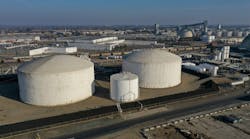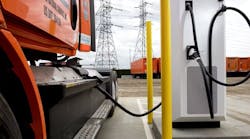What will play the biggest role in future US economic growth: the new energy that we find, or the energy that we avoid using?
Even as Congress and the news media focus almost completely on the question of where America will find new sources of traditional and emerging energy sources, the little-understood fact is that new energy sources are likely to play a much smaller role in the current US economic recovery and future growth than are new advances in energy efficiency, according to leading experts.
Even worse, the overwhelming emphasis on new energy is “crowding out” meaningful national dialogue and progress on achieving greater energy efficiency in an economy that is struggling today at a level of just 13% efficiency in terms of energy use, meaning that 87% of the energy we use is wasted.
In a phone-based news conference recently, John A “Skip” Laitner, director, economic and social analysis, American Council for an Energy-Efficient Economy (ACEEE); and Robert U Ayres, emeritus professor, economics and political science and technology management, European Institute of Business Administration (INSEAD), summarized the thinking at a symposium session held to mark the 30th anniversary of the ACEEE.
Among the facts highlighted during the symposium:
•America’s economy has tripled in size since 1970, and three-quarters of the energy needed to fuel that growth came from efficiency advances—not net new energy. Going forward, the current economic recovery and future economic growth are likely to be even more dependent on new energy efficiency advances than was the period of 1970-date.
•Americans may have an overly optimistic impression of how energy-efficient the United States is. Despite the enormous strides achieved in the past four decades, the US economy remains only about 13% energy-efficient. In contrast, Japan and several European countries are about 20% efficient, a factor of 1.5 higher than the United States.
•How big might the next round of potential energy efficiency be? If we invested in more energy-productive technologies, energy efficiency investments can provide up to one-half of the needed greenhouses gas emissions reductions most scientists say are needed between now and the year 2050. That gain in energy efficiency would not only mean reduced greenhouse gas emissions, but it also would result in lower energy bill for consumers.
See www.aceee.org/conf/30th/april26.htm to learn more.








